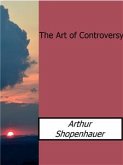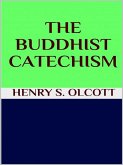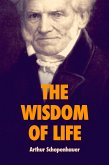"The Gâtakamâlâ" is a work well known to students of Buddhism.
The Buddha, in telling these stories of his former births or existences, speaks of himself, not exactly as the same individual, but rather as the enlightened one, the Buddha as he existed at any and at every time; and from a moral point of view, the enlightened meant the good, the perfect man.
Those lessons seem certainly to have impressed his hearers, after they once believed that what they had to suffer here on earth was not the result of mere chance, but the result of their own former deeds or of the deeds of their fellow-creatures, that they were in fact paying off a debt which they had contracted long ago. It was an equally impressive lesson that whatever good they might do on earth would be placed to their account in a future life, because the whole world was one large system in which nothing could ever be lost, though many of the links of the chain of cause and effect might escape human observation or recollection.
This class of stories is peculiar to Buddhism; for although the idea that every man had passed through many existences before his birth on earth and will pass through many more after his death.
Prof. Speyer has given us an English translation in this volume. The edition of the Sanskrit text by Prof. Kern is not only an editio princeps, but the text as restored by him will probably remain the final text, and Prof. Speyer in translating has had but seldom to depart from it.
The Buddha, in telling these stories of his former births or existences, speaks of himself, not exactly as the same individual, but rather as the enlightened one, the Buddha as he existed at any and at every time; and from a moral point of view, the enlightened meant the good, the perfect man.
Those lessons seem certainly to have impressed his hearers, after they once believed that what they had to suffer here on earth was not the result of mere chance, but the result of their own former deeds or of the deeds of their fellow-creatures, that they were in fact paying off a debt which they had contracted long ago. It was an equally impressive lesson that whatever good they might do on earth would be placed to their account in a future life, because the whole world was one large system in which nothing could ever be lost, though many of the links of the chain of cause and effect might escape human observation or recollection.
This class of stories is peculiar to Buddhism; for although the idea that every man had passed through many existences before his birth on earth and will pass through many more after his death.
Prof. Speyer has given us an English translation in this volume. The edition of the Sanskrit text by Prof. Kern is not only an editio princeps, but the text as restored by him will probably remain the final text, and Prof. Speyer in translating has had but seldom to depart from it.









